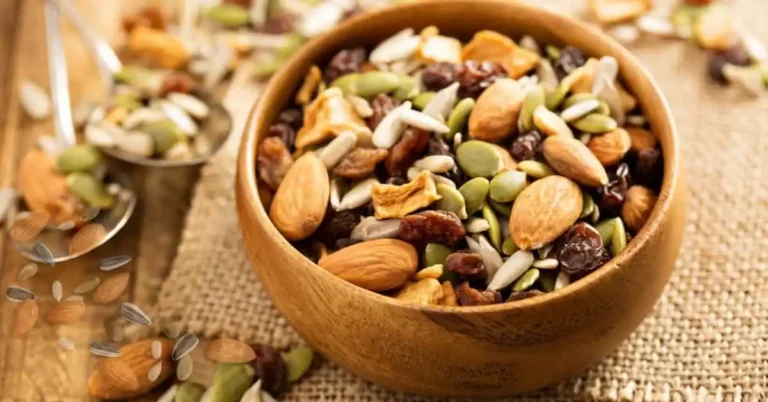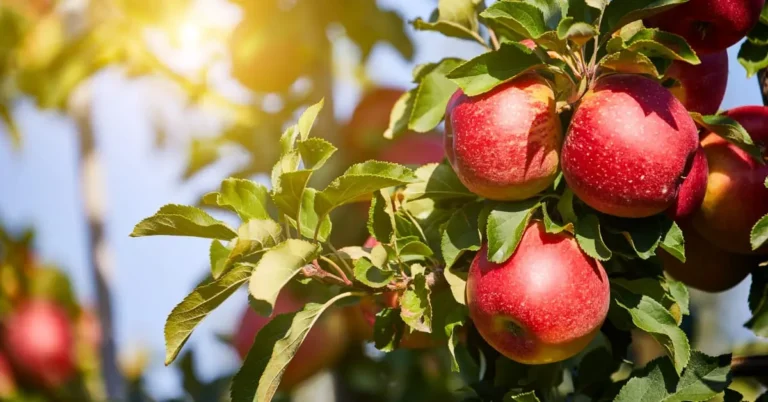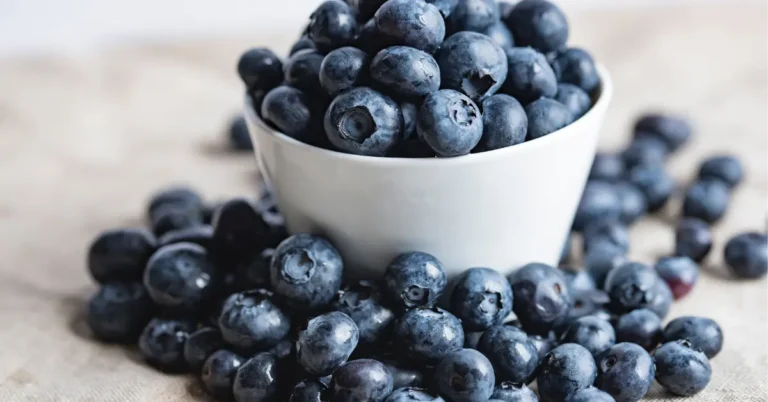27 Nutritional Health Benefits of Green Fruits
Green fruits have numerous health benefits. The health benefits of green fruits originate from their high nutrient content, which includes vitamins, minerals, and antioxidants. These vibrant fruits must be included in your diet because they support various biological functions. Green fruits benefit your heart by lowering your risk of cardiovascular disease. Thus, including more green fruits in your diet may help you feel mentally and physically better.
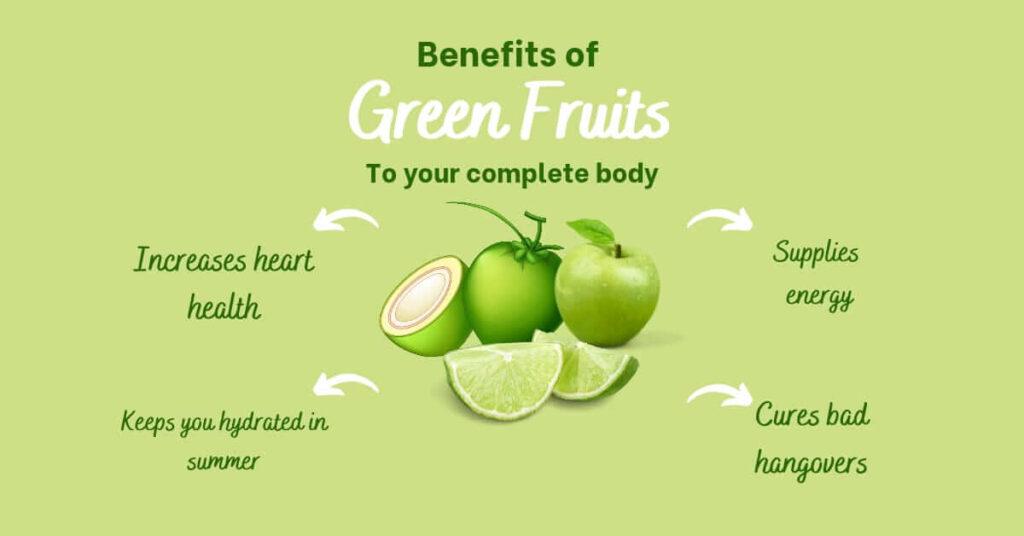
Nutritional value of Green Fruits
Fruits like kiwi, apple, and pineapple contain vitamins, minerals, and antioxidants. Maintaining fitness is mainly dependent on these vitamins. In addition to acting as an antioxidant to shield cells from harm, vitamin C boosts immunity. Vitamin A is required for skin and eye health. Vitamin K is necessary for blood clotting.
1. Abundant in Essential Vitamins
Green fruits are an excellent source of vitamins, vital in maintaining fitness. Vitamins which are present in fruits are:
Vitamin C:
Green fruits like Guava and papaya are sources of vitamin C. These fruits support the immune system, which helps in iron absorption and promotes healthy skin and wound healing.
Vitamin K:
Leafy green fruits such as spinach and grapes are packed with vitamin K, essential for blood clotting, bone health, and heart condition.
Folate (Vitamin B9):
Avocado, known for its creamy texture, is an excellent source of folate, a B vitamin essential for cell division and developing of neural tubes in pregnant women.
Vitamin A:
Papayas have beta-carotene, which converts into vitamin A. Vitamin A is good for vision, skin, and a robust immune system.
Nutritional Health Benefits Of Green Fruits
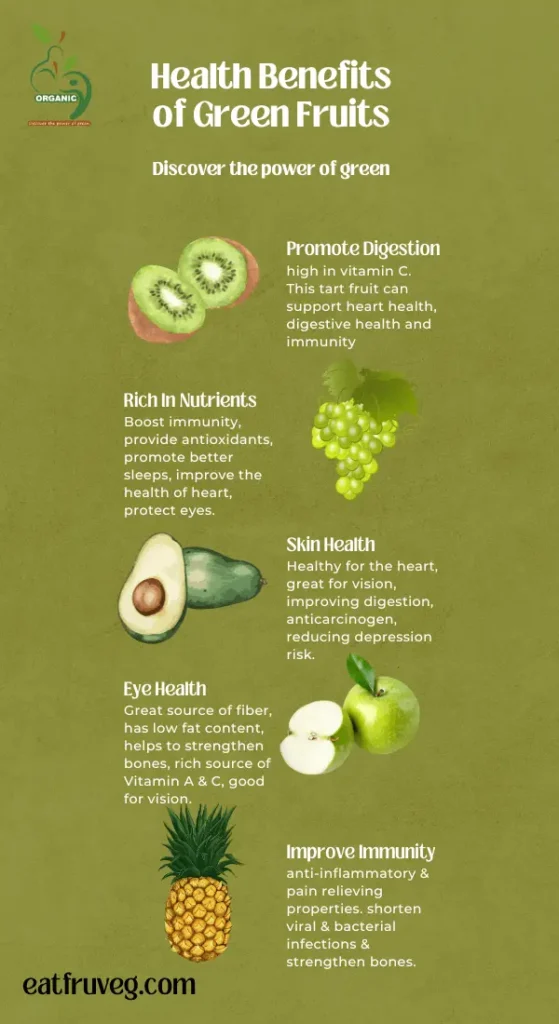
2. Dietary Fiber for Digestive Health
Green fruits are often excellent sources of dietary fiber, which provides a range of such as:
Digestive Health:
Fiber promotes regular bowel movements, which helps to maintain a physical digestive system and prevent constipation.
Weight Management:
A fiber-rich diet helps to reduce hunger, lowering the risk of overeating and assisting with weight management.
Blood Sugar Regulation:
Fiber slows down sugar absorption, which helps to control blood sugar levels and lowers the risk of diabetes.

Heart Health:
A high-fiber diet lowers cholesterol levels. It also lowers blood pressure and the risk of heart disease.
3. Antioxidants:
Fruits are packed with antioxidants that fight against oxidative stress, reducing the risk of chronic diseases. These antioxidants include:
Flavonoids:
Green apples and grapes are high in flavonoids, which help to lower the risk of heart disease and cancer.

Polyphenols:
Green tea is well-known for its high polyphenol content, which provides various physical benefits such as increased brain function and weight management.
Lutein and Zeaxanthin:
These oxidants are present in mango and kiwis. These oxidants promote eye health and lower the risk of age-related macular degeneration.
| Green Fruit | Nutritional Value | Health Benefits |
|---|---|---|
| Kiwi | Vitamin C | Immune support |
| Vitamin k | Skin Health | |
| Fiber | Digestive Health | |
| Antioxidants | Eye Health | |
| Green Apple | Fiber | Weight management |
| Vitamin C | Dental Health | |
| Antioxidants | Heart Health | |
| Low in Calories | ||
| Avocado | Healthy fats (monosaturated) | Heart Health |
| Fiber | Weight management | |
| Vitamins K, E, C, B6 | Skin & hair health | |
| Potassium | Better nutrient absorption | |
| Grapes | Antioxidants | Heart health |
| Resveratrol (in the skin) | Immune support | |
| Fiber | Digestive health | |
| Low in calories | Weight management | |
| Green Papaya | Vitamin C | Immune support |
| Enzymes (papain) | Digestive health | |
| Fiber | Weight management | |
| Low in calories | Skin health |
4. Healthy Fats from Avocado
While most fruits are low in fat, avocados are an exception. Avocado, often called “nature’s butter,” contains monounsaturated fats, offering several physical benefits:
Do you know which green fruit is commonly used in salads & a great source of vitamin K?
It’s Cucumber
Heart Health:
Monounsaturated fats help lower bad cholesterol levels, reducing the risk of heart disease.
Weight Management:
The fats promote fullness. It helps you feel full and satisfied and enables you to manage weight.
Nutrients:
Healthy fats enhance the absorption of fat-soluble vitamins, such as A, D, E, and K, found in other green fruits.
5.Hydration and Electrolytes
Green fruits are high in water content, which keeps you hydrated. Grapes and kiwi have essential electrolytes such as potassium, which are necessary for a variety of body functions, including:
Muscle Function:
Potassium is vital for proper muscle contraction and relaxation.
Blood Pressure Regulation:
A potassium-rich diet can help lower blood pressure, reducing the risk of hypertension.
Fluid Balance:
Electrolytes maintain the balance of fluids in the body, which is crucial for overall body condition.
Nutritional Health Benefits of Specific Green Fruits
Let’s take a closer look at some specific green fruits and the unique nutritional health benefits they offer:
1. Green Apple
Green apples are high in dietary fiber and vitamin C. They help in weight management and support the immune system. Green apples have antioxidants, reducing the risk of chronic diseases, including heart disease.
2. Avocado
Avocados are high in monounsaturated fats, fiber, potassium, and vitamins. These fats can help lower cholesterol levels, and fiber supports the digestive system. It is high in folate, making it suitable for pregnant women.
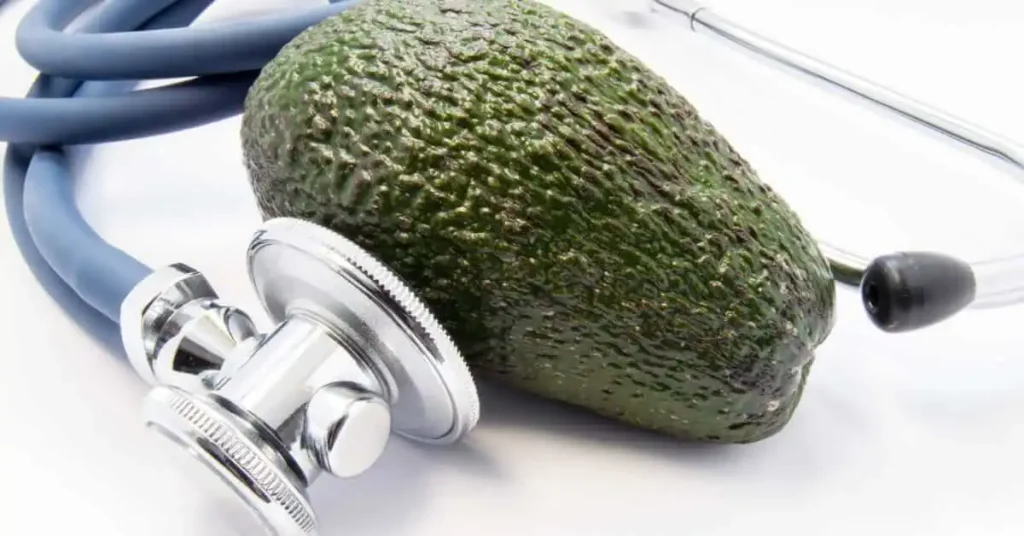
3. Kiwi
Kiwi, a small but mighty fruit, is high in vitamin C, providing more of this antioxidant than many other fruits. Its high fiber content promotes digestion and aids in blood sugar regulation. It is suitable for your eyes because it contains lutein and zeaxanthin.
4.Grapes
Green grapes are sweet and delicious and also highly antioxidants, notably flavonoids. These flavonoids lower the risk of heart disease and may help in fighting against cancer. Grapes include potassium, which is good for your heart and muscles.
5. Green Papaya
Green papaya is a tasty tropical fruit high in vitamin A and papain, an enzyme that assists digestion. Vitamin A promotes good vision and an immune system, while papain aids protein digestion and may reduce inflammation.
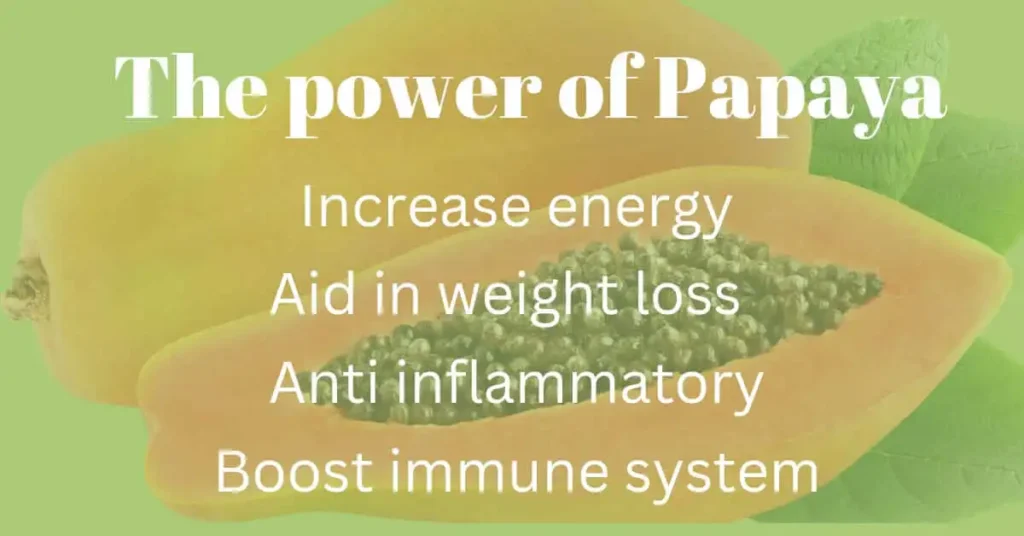
6. Pear
Pears have essential vitamins, minerals and dietary fiber, which help to maintain digestive health. Pears are anti-inflammatory antioxidants and improve cardiovascular health.
7. Lime
Limes are high in Vitamin C, which promotes healthy skin, supports the immune system and may lower the risk of chronic disease.
Lime juice is often used to enhance iron absorption from plant-based meals, which can help to prevent iron deficiency anemia.
8. Honeydew melon
Honeydew melon is high in vitamins. Vitamin C in honeydew melon promotes collagen formation in the skin.
This fruit is low in calories and provides hydration, which makes it a good choice for maintaining weight and staying hydrated.
9. Banana
Green bananas include resistant starch and pectin which promotes digestive health and may aid in blood sugar stabilization.
Green bananas’ resistant starch can improve insulin sensitivity, making them suitable alternatives for people with diabetes.
10. Figs
Figs are high in calcium, promoting bone health and lowering the osteoporosis risk.
Fiber in figs promotes healthy gut microbiota and reduces the risk of digestive diseases.
11. Guava
The fiber content of guava promotes digestion and may help avoid constipation.
Guava has lycopene antioxidants, which protect against cellular damage and lower the risk of certain cancers.
12. Oranges
Oranges are a good vitamin C source, which produces collagen to promote healthy skin.
Their high fiber content promotes digestion and may lower the risk of constipation.
13. Mango
Vitamin A and C are found in mangoes, promoting vision and immune functions.
Mango fiber improves digestion and can help regulate blood sugar levels.
14. Water melon
Watermelons have a great water content, which helps to prevent dehydration, especially in hot weather. Due to lycopene in watermelons, it reduce the development of different types of cancer.
15. Pineapple
Bromelain, an enzyme found in pineapple, improves digestion and may lessen inflammation.
It lowers the risk of macular degeneration and also prevents hypertension.
16. Grapefruit
Grapefruit contains macronutrients, micronutrients, minerals, and vitamins. It has low sodium, high potassium, and a high vitamin C. Consuming grapefruit may promote weight control.
17. Starfruit
Starfruit has high levels of antioxidants. It makes it a good anti-inflammatory. It reduces inflammation and revs up the metabolism.
It is effectively used in diabetes and helps to reduce the risk of heart disease and stroke.
18. Gooseberries
Gooseberries are a low-calorie fruit and have a high water content. It provides nutrients, dietary fiber, and carbohydrates. It prevents aging, constipation, and anemia. It improves the nervous system, memory, and brain health.
19. Plums
Green plums are antioxidants that help in reducing the risk of chronic disease. It helps lower blood pressure, blood sugar, and cholesterol levels.
They are well-known for their ability to aid digestion and ease constipation.
20. Lychee
Including lychee in your diet can help treat inflammation and tissue damage due to various factors, including vigorous exercise. Lychee plays an important part when it comes to the prevention of anemia.
21.Kiwano
Kiwano is extremely rich in vitamin C, which helps to enhance the immune system and promote collagen production for good skin. It is an excellent source of folate beta-carotene and iron, essential during pregnancy. It’s a good source of dietary fiber.
22.Jackfruit
Jackfruit contains functional compounds that can reduce diseases such as high blood pressure, heart disease, and bone loss. It can also improve muscle and nerve function, lowering homocysteine levels in the blood.
23. Feijoa
Feijoa fruits are antioxidants and rich in vitamins B, C, E, and K. They improve digestive, cardiovascular, and oral health. It has low-calorie content, so it is helpful in weight loss. It also prevents diabetes.
24. Apricots
Apricot has macronutrients such as sugar and micronutrients such as vitamins and minerals. Carbohydrates are a rich energy source of 11-13%. Apricots are rich in antioxidants.
25. Jocote fruit
Jocote fruits are rich in vitamin C and carbohydrates and are a source of calcium, iron, and a small amount of fiber. They have high levels of antioxidants. Jocote fruit can improve your immunity and skin.
26. Marula fruit
Marula fruit is a valuable source of water-soluble and fat-soluble vitamins and minerals. Vitamin A in Marula fruit is used in anti-aging products, including skin therapy for different skin disorders due to antioxidants. It also contains antioxidants and minerals such as potassium.
27. Ugli fruit
Ugli fruit has low calories, so it is of great benefit for people who are trying to reduce their weight. Like other green fruits, Ugli fruit is also a Vitamin C source so that it can boost immunity.
Do you know which green fruits boost immunity?
Yes, It’s kiwi, apples, avocados
Adding Nutritional Green Fruits into Your Diet
As we find the nutritional health benefits of green fruits, it’s necessary to know how to include these fruits in your daily meals. Here are some tips for you to add green fruits to your diet.
1. Green Smoothies
Blend fruits, like avocado, apple, and banana, along with some yogurt or almond milk for a delicious green smoothie. Honey can be added for some sweetness.
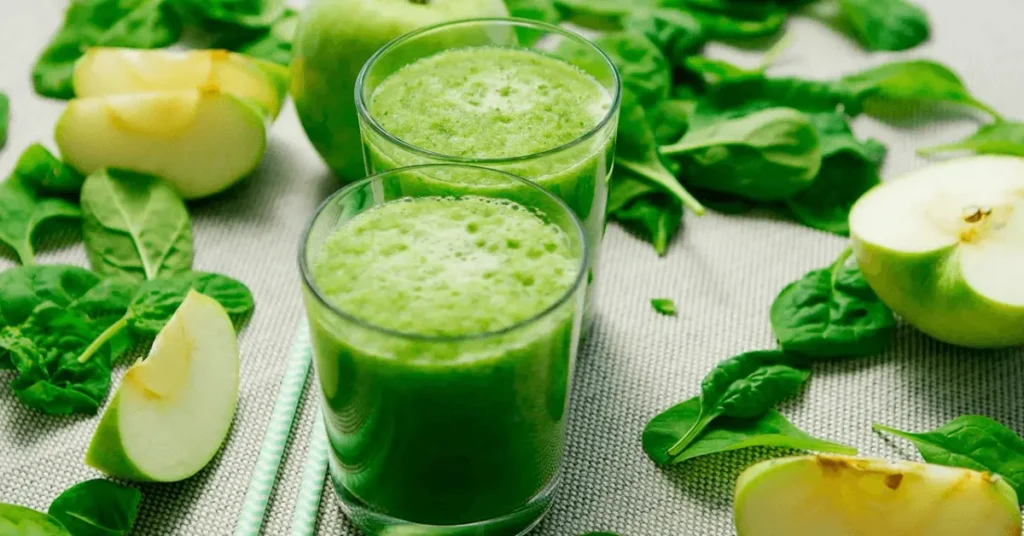
2. Salads
Add fruits into salads, like apple or avocado, for more flavor and nutrition. You can combine green fruits and vegetables to make vibrant, nutrient-rich salads.
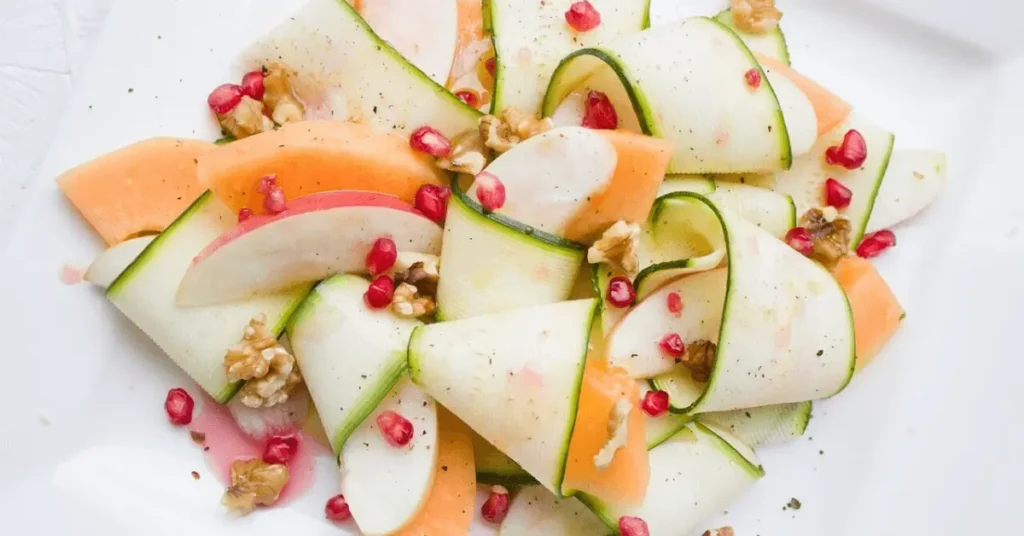
3. Snack Options
Fruits are an excellent nutritious snack. Pack some green grapes, kiwi slices, or apple wedges in your lunchbox, or snack on them in the afternoon. Without the need for manufactured snacks, its natural sweetness can satisfy your desires.
4. Guacamole
Guacamole is a famous Mexican dip. Avocado is the star of guacamole; for preparing guacamole, mash ripe avocado with chopped Tomatoes, onions, and lime juice. Add a pinch of salt. Serve with chips, or use it as a garnish for tacos and salad.

5. Desserts
Fruits can be transformed into delectable desserts. For instance, kiwi and green grapes can be added to fruit salads, or you can create a kiwi sorbet by blending kiwi with a touch of honey and freezing the mixture. Apple slices can be sprinkled with cinnamon and baked for a dessert.
6. Healthy Dips
Green fruits can be mixed with nut butter, like peanut butter, for a nutritious snack. The combination of creamy nut butter and green fruit makes a delicious contrast in flavors and textures.
7. Kiwi and Yogurt Parfait
Layer sliced kiwi with Greek yogurt and a drizzle of honey to create a wholesome and visually appealing parfait. This breakfast option is delicious and contains vitamins and probiotics for digestive problems.
Conclusion:
Adding green fruits to your diet can significantly impact your physical condition. From improved digestion and boosted immunity to weight management and heart fitness, these fruits offer many benefits. Make them a regular diet to enjoy a healthier and happier life.

